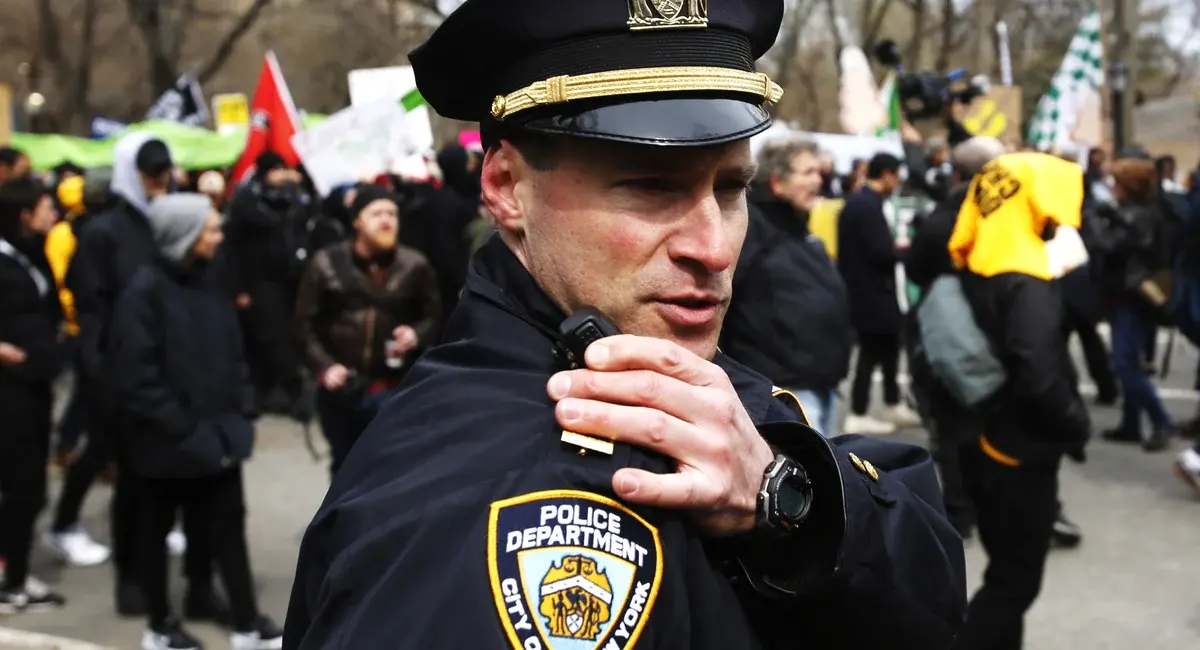The NYPD is spending $390 million on a new radio system that will encrypt officers’ communications — reversing a near-century-old practice of allowing the public and the press to listen to police dispatches.
Archived at https://ghostarchive.org/archive/eqTTk?wr=true



tbf, cops ‘doxx’ people over the radio all the time. not just suspects, either, but potential witnesses, and normal folks caught-up in ‘stop and frisk’ or ‘papers, please’ stops. full legal names, birth dates, genders, government id numbers, addresses, and so forth are broadcast for all to hear. that data should be encrypted, and is in many jurisdictions already.
That’s a really good point I hadn’t considered. However, I’m still concerned that evidence of police misconduct or things that might support an arrestee/defendants innocence is going to be contained in these broadcasts and that we could lose access to that. If this encryption does go forward, recordings of the broadcasts should be kept and their should be a process where defense attorneys and journalists and the like can ask a court for access to them.
use of different channels (encrypted and not) depending upon the expected contents of the communication would be about as reliable as officer-operated body cams.
Not just that data should be encrypted, ALL data should be encrypted, with very few exceptions. It’s scary how much privacy we lose through unencrypted communication.
Its illegal for citizens to encrypt their own radio transmissions, so no one else can legally do this.
Right, and that’s morally wrong. Not only should they be able to, they should be required to do so.
Putting regulations on ham radio that require encryption just increases the barrier of entry for ham radio for no reason.
How so? Your WiFi broadcast is encrypted. Your cellphone signal is also encrypted. The FCC doesn’t bar encryption. https://www.govinfo.gov/content/pkg/CFR-2014-title47-vol5/pdf/CFR-2014-title47-vol5-sec90-553.pdf
Now this last point is only relevant for the US but generally laws governing radio transmissions are fairly similar around the world.
In HAM radio, encryption is forbidden, which would be the most equivalent to police radio.
HAM radio is amateur radio, rules and frequencies are established with the goal of promoting amateur use. Emergency service use would be a professional use and are licensed separately. The statement that citizens are not allowed to encrypt traffic should instead say that HAM radio operators are not allowed to encrypt their communications in accordance with their license.
Yeah, that’s not how FCC or ITU licensing works
I swear there used to be a law on the books that specifically said this, and it included police radio as they use the RF spectrum owned by the People. Police radio would be unencrypted and it would just contain the day-to-day traffic, and anything sensitive they’d transmit via other means like Nextel or even before that, the police phone booths.
IIRC it was one of those “check and balance” things to keep police honest. Although I haven’t been able to find any law stating this, so perhaps I am mis-remembering some other law.
As for encryption in practice, cellular is encrypted, as others mentioned WiFi is encrypted, satellite communications are encrypted, a whole bunch of radio traffic is encrypted.
To counter @pennomi@lemmy.world , no, all transmissions should not be encrypted. The lack of openness and transparency by creating closed systems means there’s no more “watching the watchers” and we have to take organizations in power at their word. Most human communication dating back centuries was not encrypted, and humanity got along just fine.
Likewise, when we assume our communications are “secure” we all are much more willing to share things over networks that we probably shouldn’t. It makes security on the human side inherently lazy. Think about all the things people probably share over iMessage that they shouldn’t. Apple has the keys to every conversation. A bad actor could gain access to a whole bunch of peoples’ personal data they just assume is safe.
There are places where encryption should be used, but it should be used thoughtfully, not just, “lock it all down.” It creates a dangerous complacency factor.
It is a very gray area topic that does not have one universal answer.
Edit: Formatting.
Don’t you see a problem with that? Surely the answer is to communicate sensitive information via a different method, and not over the air where civilians are supposed to have transparency with emergency services. Transparency meaning checks and balances ensuring less corruption. Protect people’s identities by using the new encrypted channel. I don’t care if the officer has to press a different button to make the call.
they do often use other devices (laptops in cruisers, for instance) but away from their vehicles, the radio is usually what gets used.
I disagree completely.
Public data is public.
Well then cough up your public data: